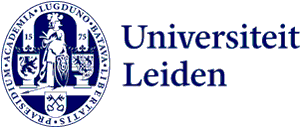
Lab coats off and rain boots on: students do research in the polder
The Vrouw Vennepolder near Oud Ade has been transformed into the Polderlab. Scientists and students from Leiden University, together with farmers and citizens, investigate how to manage peatland in a sustainable and profitable manner. A great opportunity for students to experience how scientific knowledge can be applied in practice. ‘There’s no better way to learn how to do research, than by doing it,' says biologist Maarten Schrama.
In one of the plots, the students’ hands are deep in trays of soil. 'There's another one there,' someone says. They are counting the amount of worms in the tray. On the other side of the field, a group of students are busy with what looks like a large hoover under the watchful eye of biologist Krijn Trimbos (CML). 'We are collecting insects here.' A few kilometers away, another group is studying the aquatic life in the ditches.
The third-year students of the Biodiversity minor are working hard to collect and analyse as much data as possible from the Polderlab. They do not only look at worms and insects, but also at plants, microbial changes and nitrogen and greenhouse emissions. 'We try to look at the ecosystem as a whole,' says Trimbos.
Research in the polder
The Polderlab is a 10-year project aimed at restoring the biodiversity and landscape quality of the peatland. Leiden University’s research should help reverse subsidence, reduce nitrogen and CO2 emissions and provide a sustainable alternative to agricultural management.
The Polderlab is an example for the peatland area that is under high pressure. There is little biodiversity, nitrogen emissions are too high and the soil is subsiding and salinising. This is exactly what makes the landscape so suitable for long-term research. Since last year, scientists and students have been practising different forms of cultivation and agriculture. In this way, they are trying to provide a new perspective on the peatland area. Schrama: ‘The Polderlab is the showroom of the future.’
Joint initiative
The Polderlab is a partnership between Leiden University, the citizens' cooperative Land van Ons and the municipalities of Holland Rijnland. Land van Ons, the instigator of the Polderlab, now owns 12 plots. On each of these plots, they are looking for innovative ways of practicing agriculture. 'Had you imposed this from above, like from the government or university, this project would not have been possible,' says Hans van Klinken, representative of Land van Ons. Schrama adds: 'It is literally a grassroot movement.'
